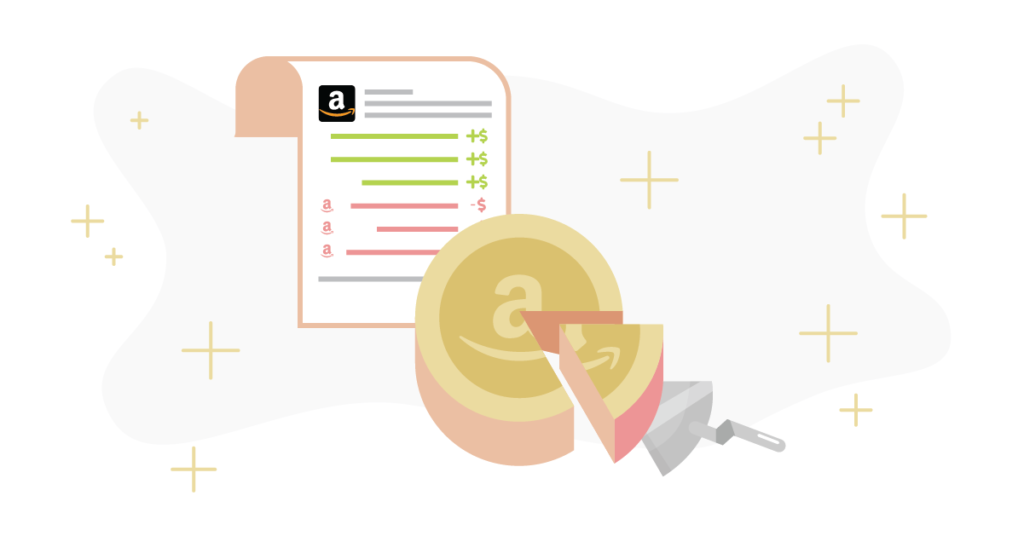Many of our modern day-to-day activities, business operations, and personal tasks are primarily done online, with the help of a smartphone, tablet, or laptop. Online stores, businesses, social media influencers, and more all leverage digital platforms to amplify and grow their brands—which is why it’s no surprise that there are currently 1.75 billion people worldwide running websites. Of those sites, several types make more money than others: e-commerce, blogs, subscriptions, and forum websites are good examples of high-earners.
Let’s look at how you can best leverage one of these websites to make a profit for you and your business.
What Kinds Of Websites Will Help Me Make The Most Profit?
With so many websites, there are several ways to make money from your online presence. But a few options tend to perform better than others. The most promising prospects for commercial growth include:
- E-commerce websites: With a robust online store, you don’t need a physical retail shop. This website allows you to sell your goods or other brands’ products, build a broad customer base, and make more money for your business.
- Blog websites: A content-based site model, blog websites are a good fit for individuals with specific niche expertise. Building thought leadership around specific topics will elevate your site and attract potential sponsors or affiliate partnerships. The more content this website produces, the better the revenue opportunities.
- Subscription websites: You can create subscription platforms or sites with restricted access using plugins. Money can be made by selling memberships or subscriptions to users who pay to access premium content or specific services offered through your website.
- Forum websites: A platform allowing individuals to share information on a specific subject digitally. It serves as a forum for responses to questions, both done by the users and reviewed to ensure that the material is acceptable. You can make money from forum websites by selling ad spaces.
Let’s dive deeper into these different website types and how to make them work for you and your business needs.
People also ask: How Long Do Shopify Stores Last?
1. One of the Biggest Ways to Make Money: E-commerce Websites
Among the most common ways to generate money through websites is to open an online retailer. An e-commerce website, similar to a regular shop, provides a virtual location from which to sell products or services. And your business revenues are then determined by the number of sales made from your site.
Luckily, numerous e-commerce systems, such as Shopify, make it simple to create an online retail website. The Shopify platform includes all the tools required to help you build the best possible relationship with your consumers and convert positive sales. This makes the platform an excellent choice for any e-commerce business owner.
Try Shopify for free! Click here to start your 14-day free trial.
Maximizing Your E-commerce Website Profits: Top Things to Keep in Mind Before You Start
To help you get your e-commerce website on the right track, there are several factors you should know about first. Before you kick off your site, do a little homework:
- Choose a unique niche: It is better to sell and advertise things within the same niche (this is true with blogging sites, too). A niche can aid you in establishing a committed consumer base. It also ensures that your site’s focus aligns with your customer’s needs. When this connection is strong, your chance is better for selling to your customers–instead of losing them to your competitors.
A niche helps people to recognize your brand and the products it offers. The most robust e-commerce sites also have niches that attract sponsors and affiliate promotions.
- Research e-commerce options: Every platform has unique functionalities, payment channels, and business tools. Investigating your options gives you more significant insights into what type of site best fits your target audience. This can also build stronger connections between your target audience and your products.
- Experiment with digital marketing: Try different e-commerce advertising techniques, including social media and email marketing. One of the cheapest ways to advertise your products and grab the attention of millions of consumers is through online marketing techniques. And digital marketing is a surefire way to connect with your target audience without much effort.
2. Blogging Websites
Blogs are one of the most popular web types for both personal and business use. In addition to being a helpful way to develop your brand, they’re also a great avenue through which you can express yourself to a broad audience. But blogging isn’t just a creative outlet; it can make you money, too.
Blogs and social media sites may give traditional print media a run for its money. Recent studies from HubSpot and Forbes point to social media and blogs becoming the preferred way for many people to access their information, entertainment, and reading materials.
With most websites and bloggers offering free access, many readers skip paying for a print magazine subscription and enjoy their daily dose of reading from free online sources—like blogs.
People also ask: How Long Does It Take To Setup WooCommerce?
How can I make money from a blogging website?
Website monetization is when you leverage exposure of your web pages to build revenue, by directing readers from your website to a partner’s business site. This can become a mutually beneficial relationship for you and your business partner.
To learn how to monetize your blog or website, read our guide on website monetization.
Ezoic, one of the top-rated website monetization platforms, can help make your blog grow a profit. Through a robust collection of tools—from integrating display ads, selling your products or services, establishing a premium content package, building affiliate links, and much more—Ezoic can be a great revenue generator and affiliate marketing partner for any blogger.
To try a free trial of Ezoic, click here.
What should I know about affiliate marketing before adding it to my blogging site?
Affiliate marketing is an excellent way for any blogger to connect services and goods with a target audience while earning a commission. You get a kickback from your affiliate partner whenever your visitors click on links to services or goods from your site content.
An important note about using affiliate or sponsored content on a blog: Although you can use affiliate website links on either your personal or business website, you should label the affiliate program as such. So visitors understand you’re able to make a profit from those links.
This labeling is considered best practice for most online content producers—and can help build greater trust between you and your users.
What steps involve adding affiliate links to my website or personal blog?
Adding affiliate links to your website is a pretty straightforward process. The basic steps include:
- Acquiring and adding a Shopify ad or link on your webpage or personal blog.
- A consumer clicking on your exclusive affiliate link.
- The consumer purchases something from Shopify.
- Tracking a sale through the affiliate link.
- Confirming the purchase with Shopify.
- Receiving compensation for the sale through a monetary bonus.
Revenue rates and earnings vary, depending on the company you’re affiliated with and how much you’ve been able to negotiate out of the deal. You’ll make approximately 5% of the transaction at the lower end of the scale. You can earn up to 50% of the transaction on the higher end. (A few affiliate program networks pay a fixed sum per transaction rather than a percentage.)
What should I know about sponsored blog articles?
Some writers find it difficult to monetize their websites without advertisements and aren’t comfortable exposing their readers to advertisements. When you use online ads, you give up some degree of freedom around what’s shown on your website. Some ad content may irritate or annoy visitors. And an increasing number of individuals use ad blockers, which will reduce your website’s profitability.
An alternative to consider is sponsored content. Sponsored posts are when the blog or site owner publishes on behalf of a third-party business looking to connect its product or services with its core audience. As a blogger, you can get paid to write articles about your sponsor’s products or services—and the sponsor then gets the benefit of exposure to your readership.
The arrangement can benefit you both: You get paid for featuring sponsored products or content, and the sponsor gets a boost in exposure.
People also ask: How Much Does It Cost to Monetize My Website?
3. Subscription Websites

Subscription websites make money by limiting the availability of certain materials to only those who pay for access. “Gating” content or services behind a paywall or requiring users to pay for a membership to log in, gives premium users access to better-quality content, promo coupons, video lessons, and more.
Several websites and newsgroups use this type of monetization as a promotional technique to increase the profitability of their business. Subscriptions can elevate the desirability of your content. Putting premium pieces behind a paywall piques interest and curiosity—and may contribute to a boost in sales.
What should I keep in mind before building a subscription website or adding subscription plugins?
When hunting for the appropriate subscription plugin for your online platform, keep the following factors in mind:
- Choose the plugin options that satisfy your customers’ needs and fit their finances: Although premium subscription plugins offer additional services and greater flexibility, sometimes free versions hide behind higher payment requirements a few months after sign-up. Cheaper initial financing may be offered just to help you start the website (but later lock you into higher costs down the road). Be sure to read the fine print before you select a plan for your blog site or business.
And when it comes to building subscriptions for your readers, consider your target audience. Think about building tiers; for example, consider opportunities to pay-per-download or use for specific content pieces or services, monthly or short-term subscription options, and long-term discounts for extended memberships.
- Investigate the available payment methods: Making it easy for your users to purchase on your website can create a positive snowball effect and encourage additional visitors to sign up for memberships.
Because payment processors and plugins handle the financial transactions between you and your subscribers, it’s essential to research and choose wisely from your top options.
To help find your best choices, look for:
- Processors that offer various methods of transactions. This can be of great benefit to you as a site owner. For example, you’ll want your site visitors to be able to subscribe through whatever online payment is most convenient to them (debit and credit cards, Venmo, PayPal, online check, and so on).
- Transparent pricing. Outline clearly what options are available to your potential customers and what services their payments will receive. This allows your customers to select services that they can afford.
- Include total costs. In addition to the specific costs for your products and services, be sure to map out your transaction fees, chargeback fees, monthly fees, cancellation costs, and more.
You’ll also want to partner with a payment company that works well for you and your customers. Some examples of today’s top-quality payment processing companies include:
- Stripe
- PayPal
- Flagship Merchant Services
- Due
4. Forum Websites

Users can communicate with one another and share links, data, and other information through forums and community-based websites. These types of websites are highly social and can be a great way to tap into active audiences, and both generate and leverage user content.
Forum websites, much like social networking websites, don’t generally offer original content or material but instead provide a platform for visitors to exchange their information and ideas with one another. Online forums are a great space for people to communicate and trade info. Some good examples of forum-style websites are seen in recipe exchanges, neighborhood message boards, sports and nutrition forums, and more.
What should I know about before building a forum website?
You are allowing other people to share their data and links on forum websites. So, it’s very important to plan to moderate the site content before you launch. You’ll need to be sure you have the capacity and resources to “patrol” the community boards and forums. You must put safeguards in place to prevent any harmful resources or misinformation from spreading through your platform.
To do this, the following two factors can be essential:
- A structured navigation system: When creating a forum website, your initial priority should be establishing a structured navigation system for hosting and finding various debate threads. Many forums build their debate threads, and others enable members to create their own. Keep your navigation simple to help your users find the threads they’re most interested in so people can easily find what they’re looking for.
- The ability to monitor and control forum debates: Moderators can help you examine forum posts and eliminate harmful or unlawful entries. You’ll want to establish and enforce a secure environment where everyone can participate in the debate. There’s also an opportunity to use expert moderators that users can access for a fee. For health advice, niche specialists, and more, this can be an opportunity to provide a premium subscription-style service or connect users with specialized content.
What is the best way to make money from a forum website?
Selling advertisement space is usually the most common way to make money from a forum website. Employing a pay-per-click model is a good approach and can help you earn money from advertising by garnering commissions each time someone clicks on an advertisement from your website.
For example, if your standard cost-per-click (CPC) is $0.25, and you get 100 clicks daily, you’ll make $10,000 per year from your site.
In truth, hundreds of different website varieties and themes may produce revenue. The ones listed here are among the most profitable methods employed across e-commerce channels today.
Check out our blog library to learn more about other ways to monetize your website. Or, get in touch with us today for a free consultation.






